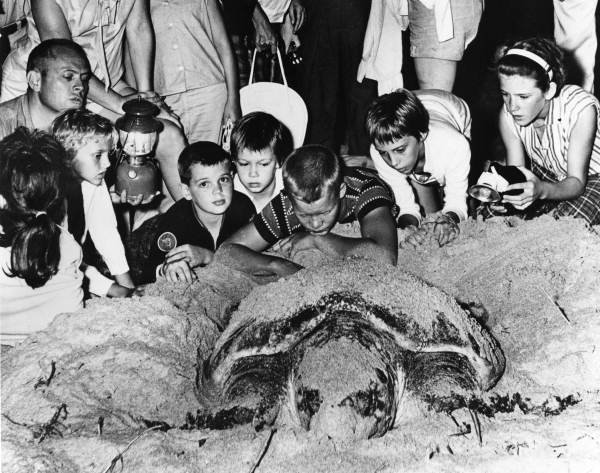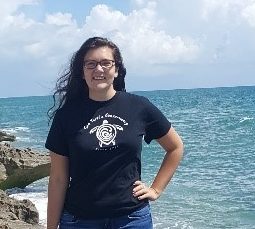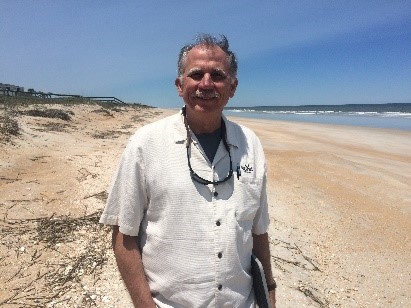Dating back to its territorial past, Florida has played a major role in the global development of sea turtle protection policy – and the science that supports it. Over the next year STC will tell this story through an interactive ArcGIS StoryMap, which will contain a curated timeline, a series of articles (in blog format), and accompanying social media posts, all based on original research, including oral history interviews. The project will be led by University of Florida Law Professor Emeritus Thomas T. Ankersen and Sea Turtle Conservancy (STC) Development and Policy Coordinator Stacey Gallagher.
With more than 22 million residents and more than 100 million yearly visitors, Florida’s fast-track growth and development policy has always challenged its ability to protect the nature that brought people to the state in the first place. Nowhere is this truer than along the coast.

According to NOAA, about three-quarters of the state’s population live along the coast. This makes sea turtles especially vulnerable to a host of man-made threats, including disorienting coastal lighting, degraded water quality, unforgiving sea walls and other forms of armoring, vessel strikes, and, perhaps most confounding, climate change.
The state’s development trajectory from a backwater frontier to a thriving modern economy, built in large part on its coasts and climate, has made it an ideal laboratory for the development of sea turtle conservation science and policy. As a result, Florida’s sea turtles have played an outsized role in shaping state, federal and international environmental and fisheries law, as well as coastal management and resiliency policy. And, of course, Florida is the intellectual home to the pioneering science and advocacy that has provided, and continues to provide, the underpinnings of policy development.
These protection efforts took years of science-based advocacy, research, and education by dedicated individuals in the sea turtle community – many of whom are no longer here to tell the story of how the protection laws or policies were established. Those scientists, agency personnel and advocates still working in the trenches have little time to reflect on the state’s contribution to sea turtle protection law and policy. Recognizing this, STC is excited to embark on this project, not only for the historical record, but to motivate and inform future leaders in sea turtle conservation.
Funded by the Sea Turtle Grants Program, the final product will live on the STC website. The first installment will explore the rise and demise of the sea turtle fishery in Florida, beginning with an early eighteenth century dispute over access to the fishery between the territory of Florida and The Bahamas.
Make sure to check STC’s website and social media pages for periodic updates.
About the Authors

Stacey Gallagher has been a development coordinator and sea turtle lighting specialist at STC for six years. Stacey participates in education and outreach on behalf of sea turtles and their habitats and regularly mobilizes the support of STC’s followers and members, local marine turtle permit holders, and other stakeholders for the protection of Florida’s sea turtles. By hosting presentations at conferences, virtual webinars for coastal code enforcement personnel, and events for the general public, Stacey raises the alarm of the plight of sea turtles and provides ways for audiences to reduce threats to their survival. Stacey’s academic and employment backgrounds were focused on mass communication and journalism, and Stacey uses those skills every day to inspire various audiences to take conservation action.

Thomas T. Ankersen is Director Emeritus of the Conservation Clinic at the University of Florida Levin College of Law. While at UF he also directed the Coastal Policy Lab in the Center for Coastal Solutions at the University of Florida and Florida Sea Grant’s Legal Program. Ankersen has helped to craft state and local legislation and rules concerning sea turtle lighting protection, coastal armoring and coastal resiliency. Ankersen has also worked on international sea turtle conservation policy in the wider Caribbean, especially Costa Rica and the Bahamas. He helped draft and negotiate the 1998 Sea Turtle Conservation Agreement between Costa Rica and Panama, a legacy of the late Dr. Archie Carr. In addition to a law degree from the University of Florida, Ankersen has a Master’s Degree in History from the University of South Florida.